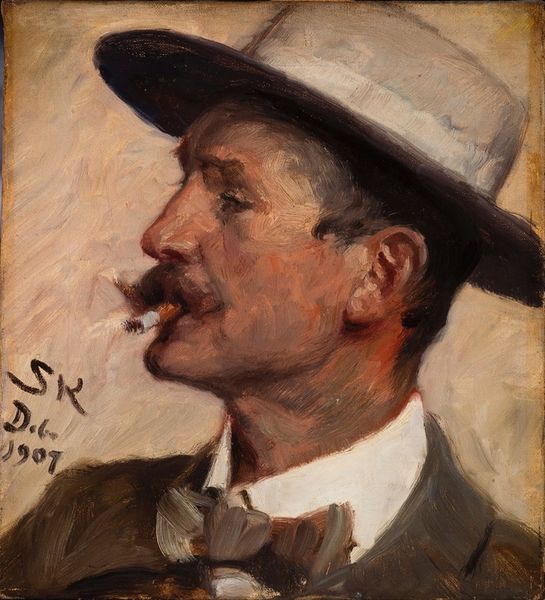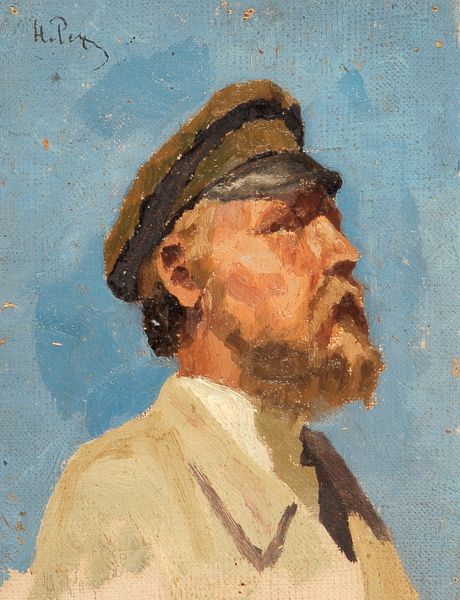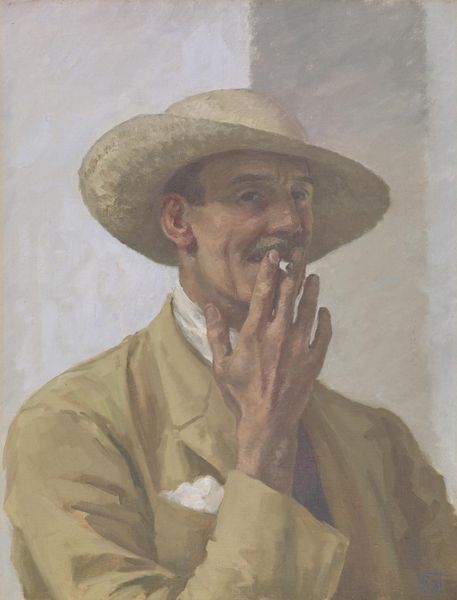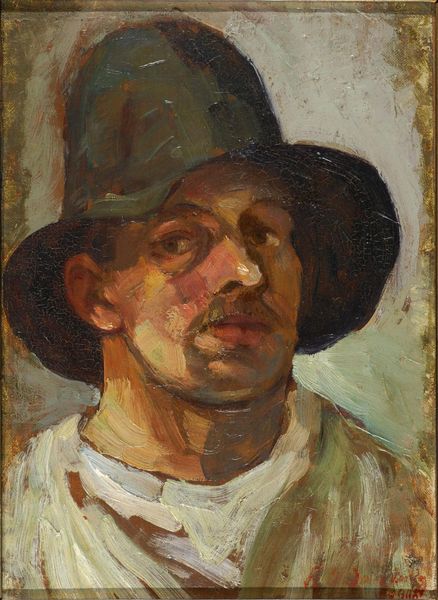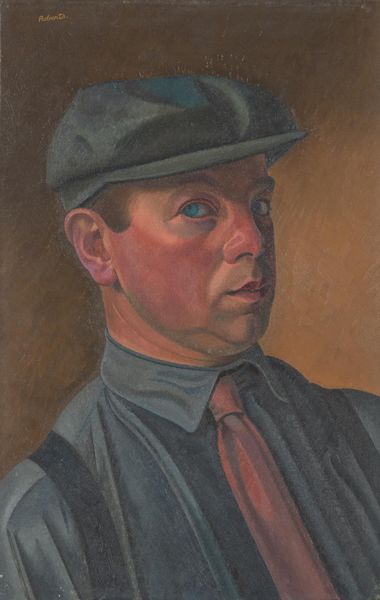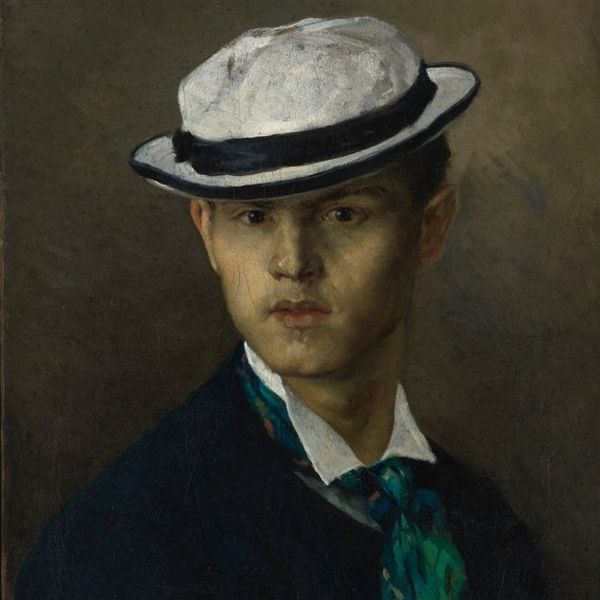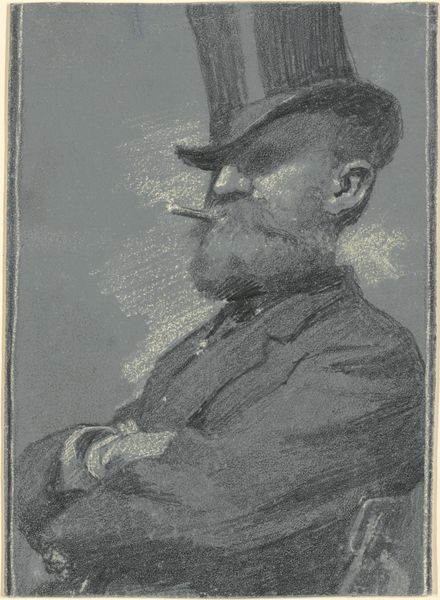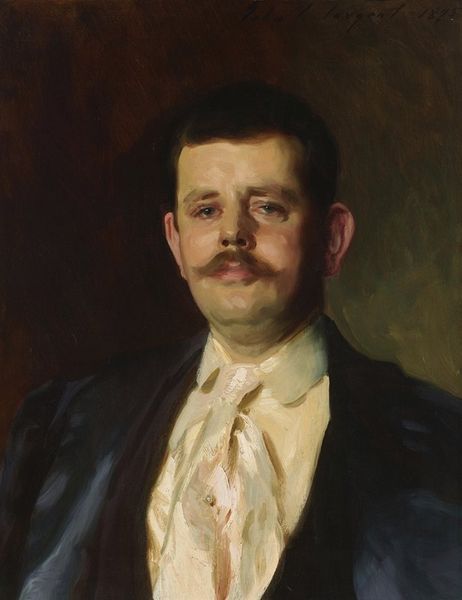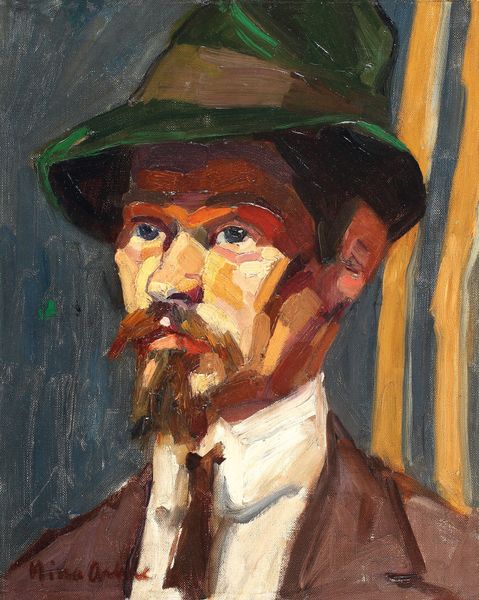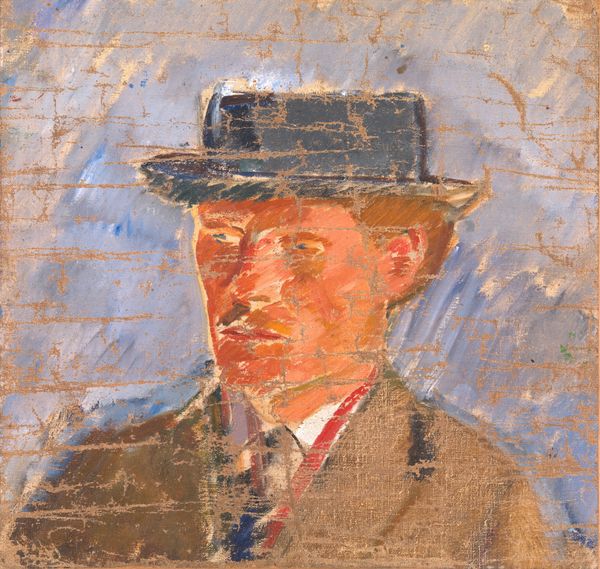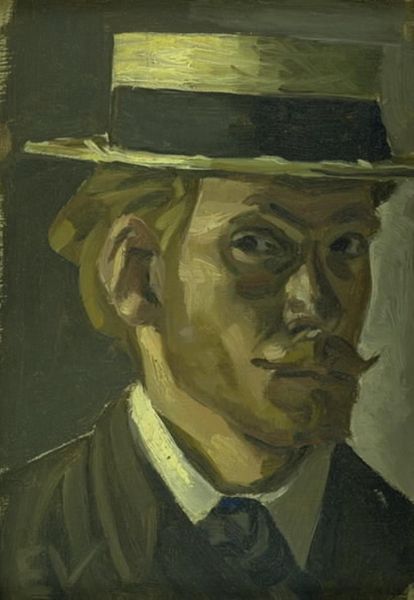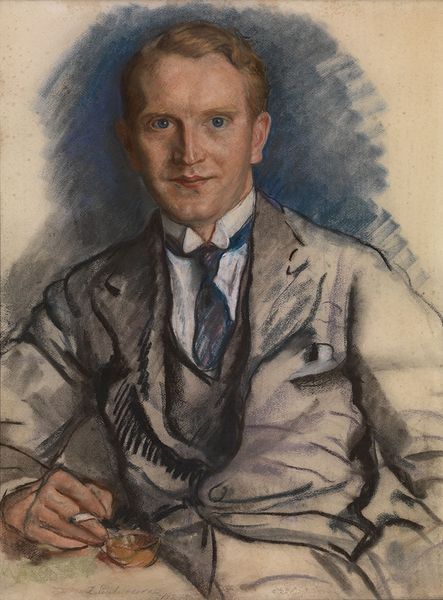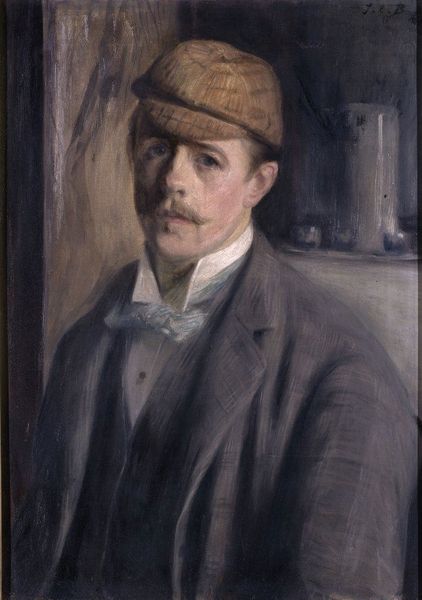
painting, oil-paint
#
portrait
#
figurative
#
painting
#
oil-paint
#
oil painting
#
genre-painting
#
academic-art
#
realism
Copyright: Modern Artists: Artvee
Editor: Here we have Norman Rockwell's "Portrait of Victor Clyde Forsythe," an oil painting. What strikes me is the casualness of the subject, a regular guy in a cap, yet rendered with such attention to detail in the face. What do you make of it? Curator: As a materialist, I see a lot in the application of the oil paint itself. Look at the brushstrokes – quick, efficient, almost mass-produced. It begs the question, is Rockwell elevating the everyday working man, or is he subtly critiquing the rise of industry by mirroring its methods in his artistic process? Editor: That's an interesting take. So, you're saying the way Rockwell *made* the painting speaks to larger societal shifts? Curator: Precisely! The canvas, the pigments, the brushes - all commodities within a growing art market. How does Rockwell’s choice of such accessible materials democratize art, or does it further embed art within a system of capital? And what does depicting Forsythe in common garb signal? A connection to the labor force? Editor: I hadn't considered the commercial aspect so deeply. The clothing also indicates social status; the subject’s attire seems distinctly working class, perhaps even attempting upward mobility through a carefully chosen tie. Curator: Exactly. So how do the means of production - both of the painting and of Forsythe's social position - influence the viewer's reception? The materiality guides us there. Editor: I'm seeing the painting in a completely different light now! Thank you. Curator: My pleasure. Considering art through the lens of material production adds crucial context.
Comments
No comments
Be the first to comment and join the conversation on the ultimate creative platform.
